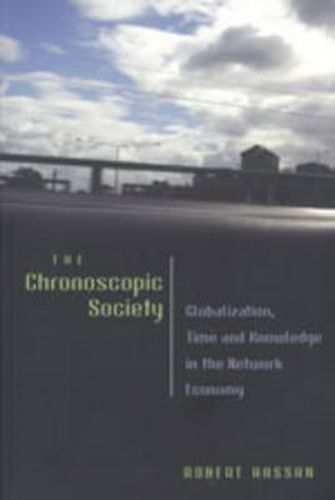Readings Newsletter
Become a Readings Member to make your shopping experience even easier.
Sign in or sign up for free!
You’re not far away from qualifying for FREE standard shipping within Australia
You’ve qualified for FREE standard shipping within Australia
The cart is loading…






In this groundbreaking book, media and time theorist Robert Hassan looks at the effects of the nexus between neoliberal globalization and the information technology revolution upon the production and dissemination of knowledge in technologically advanced societies. This nexus has created what Hassan calls an information ecology, an environment that affects the individual, culture and society in the same dialectical ways as the natural and built environment. Significantly, this information ecology generates its own temporality, that of network time, a digitally compressed and accelerated time that has sped up society dramatically since the late 1970s. Network time has changed the mechanics and institutions of knowledge production in society to an unprecedented degree and extent. How we think, what we think, and what we consider to be useful and legitimate knowledge is changing in ways (and at a rate) that poses serious problems for mass culture and civil society.
$9.00 standard shipping within Australia
FREE standard shipping within Australia for orders over $100.00
Express & International shipping calculated at checkout
Stock availability can be subject to change without notice. We recommend calling the shop or contacting our online team to check availability of low stock items. Please see our Shopping Online page for more details.
In this groundbreaking book, media and time theorist Robert Hassan looks at the effects of the nexus between neoliberal globalization and the information technology revolution upon the production and dissemination of knowledge in technologically advanced societies. This nexus has created what Hassan calls an information ecology, an environment that affects the individual, culture and society in the same dialectical ways as the natural and built environment. Significantly, this information ecology generates its own temporality, that of network time, a digitally compressed and accelerated time that has sped up society dramatically since the late 1970s. Network time has changed the mechanics and institutions of knowledge production in society to an unprecedented degree and extent. How we think, what we think, and what we consider to be useful and legitimate knowledge is changing in ways (and at a rate) that poses serious problems for mass culture and civil society.